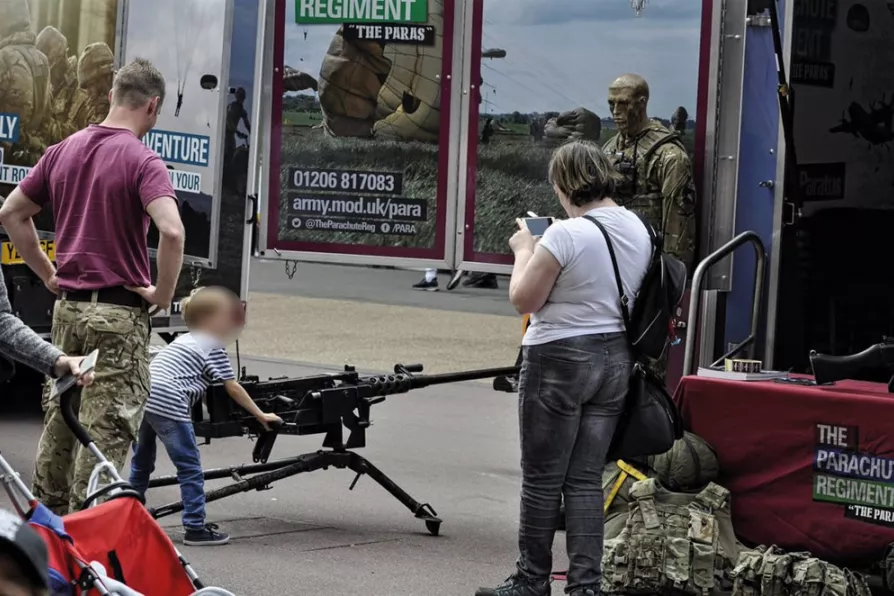LUKE FLETCHER outlines Plaid Cymru bold plans for wide-ranging policy consultations with trade unions in Wales

 A child plays with a gun at an Armed Forces Day event
A child plays with a gun at an Armed Forces Day event
IN 2019, the Facebook page of a children’s nursery in Lincolnshire featured photos of small children wearing real military body armour.
The nursery had been visited by a soldier who had talked to the children and invited them to try on his helmet and parts of his uniform.
These children, barely older than toddlers, had not been given any sense of what happens to human bodies and minds in war. They had been taught to associate uniforms and military equipment with fun and excitement.

In the second part of a two-part article, CONOR BOLLINS asks why the government’s ambition when it comes to the military is not applied to sectors where it could do real good

While working people face austerity, arms companies enjoy massive government contracts, writes ARTHUR WEST, exposing how politicians exaggerate the Russian threat to justify spending on a sector that has the lowest employment multiplier

We must take a stand against the government’s spending on war











